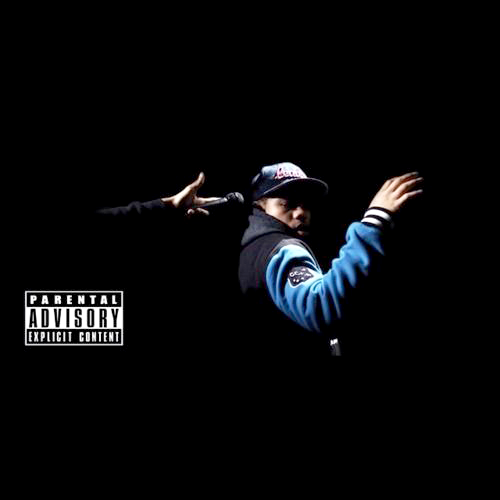Sporting a name wildly familiar in the recent Chicago hip-hop scene, Taylor Bennett, young brother of wunderkind Chancelor Bennett—aka Chance the Rapper—is making his own name as Chicago hip-hop’s next big thing. His ascent has been slightly slower than his brother’s, sure, but Taylor’s sophomore mixtape, Mainstream Music, has gotten coverage in Spin magazine as well as Chicago-based hip-hop blog Fake Shore Drive.
Born and raised in Chatham, Bennett—eighteen and a senior at Jones College Prep—seems to be hitting all of the same benchmarks his brother did. Elite prep school? Check. Collaborations with a slew of Chicago musicians? Check. Raspy, sing-song flow? Check. But Bennett isn’t the same man as his brother, and this is ultimately both a good and bad thing for his music.
It’s good because it’s refreshing to hear a young artist, one inevitably under severe pressure to perform at the same high level and with the same degree of success as his older brother, produce something mostly unique. Bennett is a talented rapper. He has a great knack for switching, on a dime, between a languorous drawl and rapid-fire delivery, and he manages to cram a bushel of lyrics into each verse. Hyper-literate flow seems to run in the family; highlights such as “New Chevy,” “Take Me to the Moon,” and “Hope” showcase this.
The mixtape itself, coming on the heels of his first mixtape, The Taylor Bennett Show in late 2013, is, like its title, concerned with music in the contemporary landscape. This is a huge undertaking, and Bennett seems to not really take it that seriously. It’s discussed once, on “Hope,” where Bennett declares, “That’s why I like mainstream music, it don’t make sense.” That’s really it though, and the rest of the album is concerned with less specific causes, including one strange moment toward the end. Penultimate track “Crème Brulee,” featuring Lil Herb, features lyrics explicitly referencing guns. Taylor’s glorifying verse lacks the sort of emotion and nuance that Chance brings to his hook on “Paranoia,” which connects the act of carrying arms to feelings of fear and confusion.
This is part of the reason that conflating Bennett with Chance is a problem. In Bennett’s music, he inevitably is going to be compared to his brother. When he isn’t as successful, it stings that much more. There are good tracks on Mainstream Music, but it isn’t Acid Rap. It isn’t tight and seamless from start to finish. On Acid Rap, the guest producers were woven into the tracks, and the contributors felt natural. On Mainstream Music that isn’t the case.
Maybe it’s the annoying calling card of producer Saint the Goodboy, his name echoed repeatedly in a child’s whine, humming out at the beginning of every song he produced. Maybe it’s that Bennett is rapping about clubs and girls in a far more overt way than his brother did. Whatever it is, it feels rote and compiled, not unitary and creative.
This of course raises the question: would Bennett be praised if he wasn’t Chance’s brother? Probably. He’s got chops. But he’s standing in too large a shadow to really be critiqued objectively. Vocally, he sounds like Chance. And while this could be simple genetics, in the end the reason doesn’t matter. The influence of Chance is everywhere on the album, regardless of how Bennett channels it. Whatever he does, he will always be weighed against his brother, and that’s a tough scale to balance.



